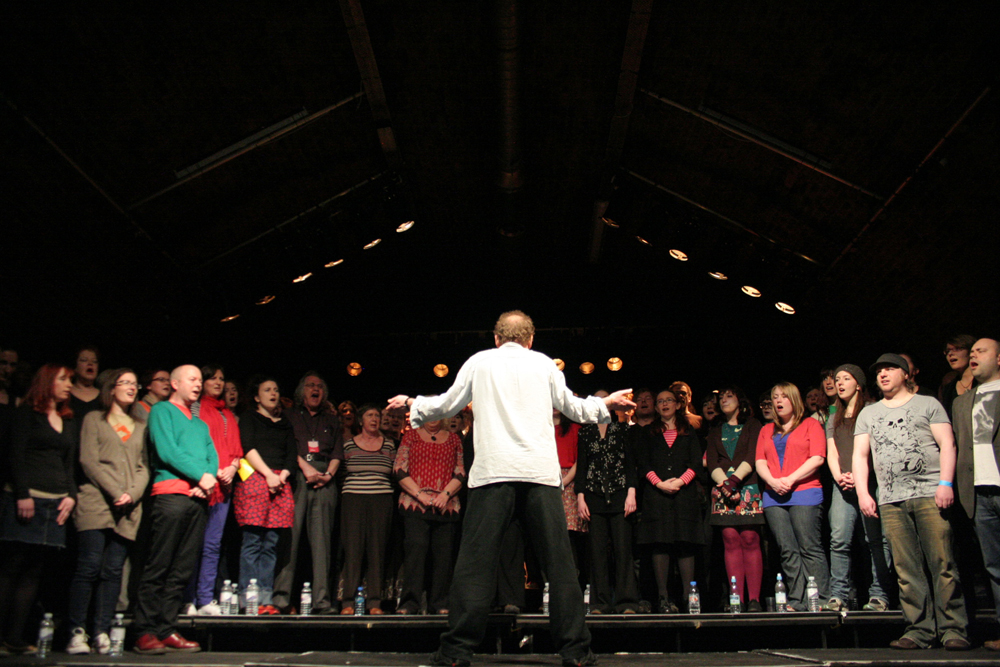
Century FC
Phil Minton
A 100 strong Feral Choir of people who’ve never improvised with their voices before, conducted by composer Phil Minton.
Arika have been creating events since 2001. The Archive is space to share the documentation of our work, over 600 events from the past 20 years. Browse the archive by event, artists and collections, explore using theme pairs, or use the index for a comprehensive overview.

A 100 strong Feral Choir of people who’ve never improvised with their voices before, conducted by composer Phil Minton.

A discussion about what is at stake in the performance of realness and the practice of passing, and how they are both acts of survival and resistance.
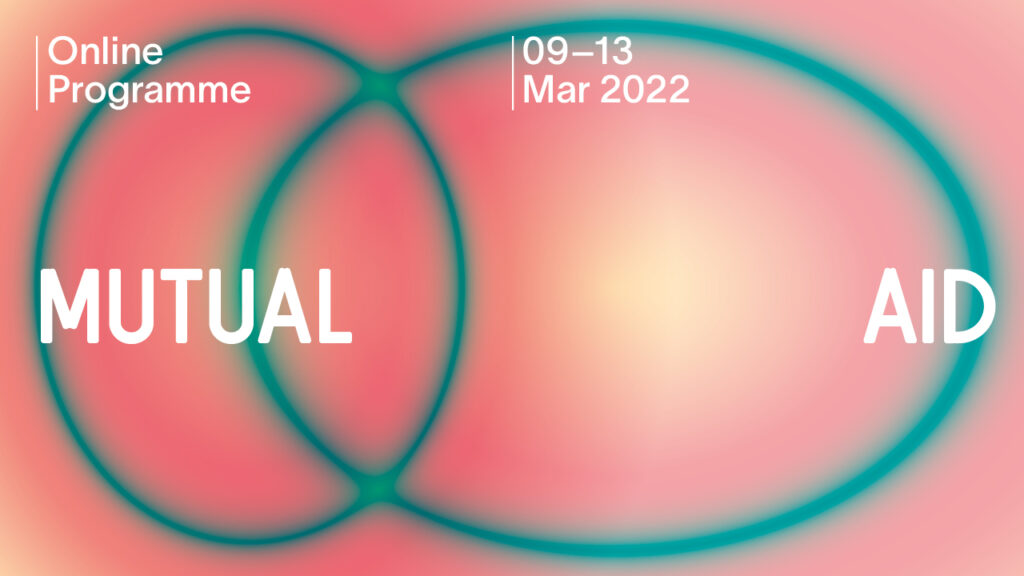
4 days of workshops, discussions and artists presentations exploring the radical act of caring for each other while working to change the world.
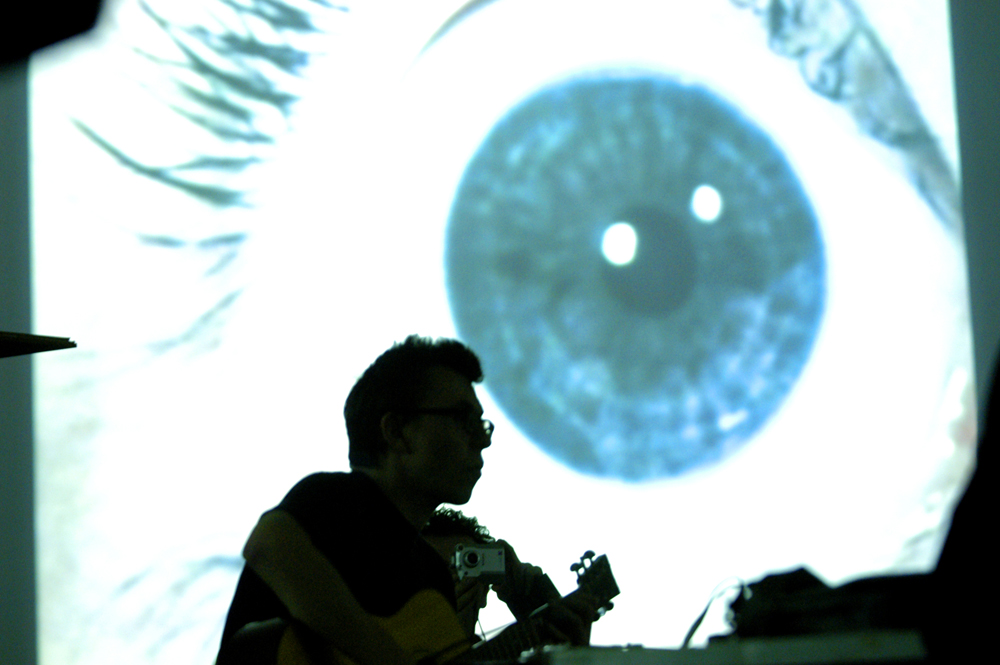
A live installation of the ‘Film Ist’: projected on 4 huge screens and an improvised soundtrack from 4 figureheads of the Austrian experimental music scene.

Akio Suzuki and John Butcher performing in a large multi chambered industrial ice house.

Two bottomless brunch writing workshops—with readings—speculating the relationship between space, infrastructure, technologies and sex.
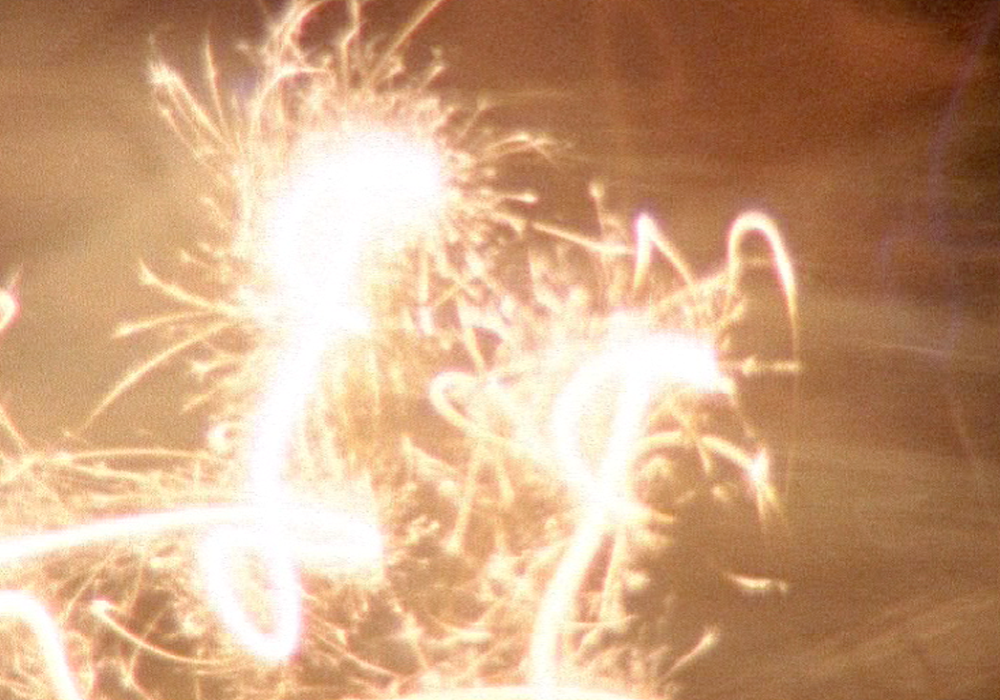
Freeform Super 8mm documentation of Sunday at Instal 06 by filmmaker Matt Hulse.

A performance bearing witness to a struggle built upon patience and collective action from the great multi-instrumentalist and member of the AACM.
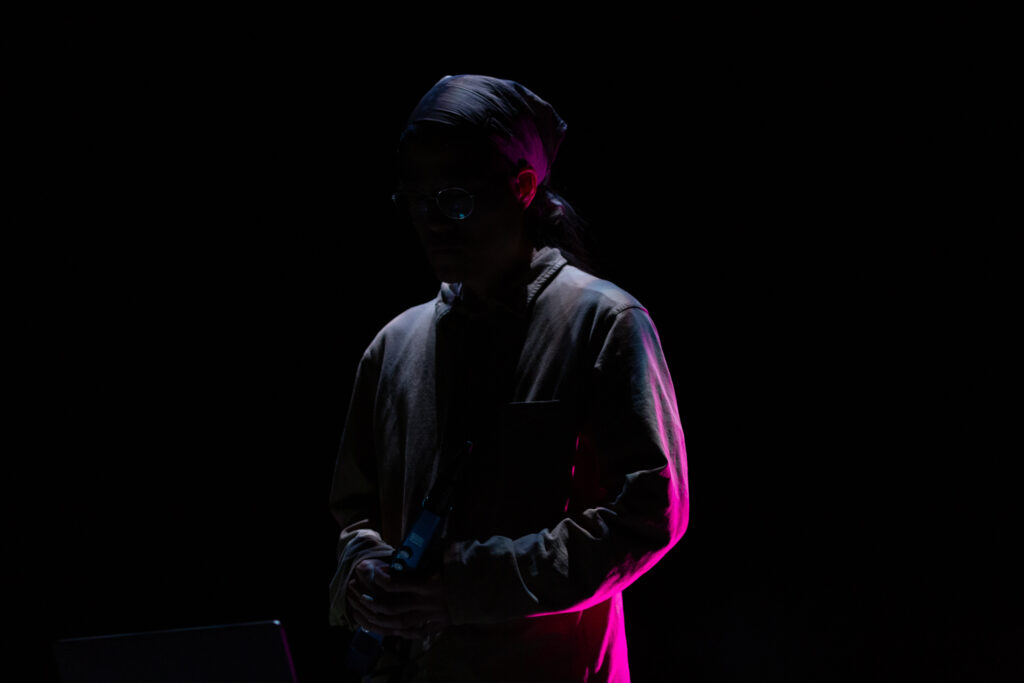
A dense materialist experience at the limits of contemporary computer music, drawing on Korean Shamanism and Communism; striving to create a strange new vibration to the world that seems to contain the seed of everything.
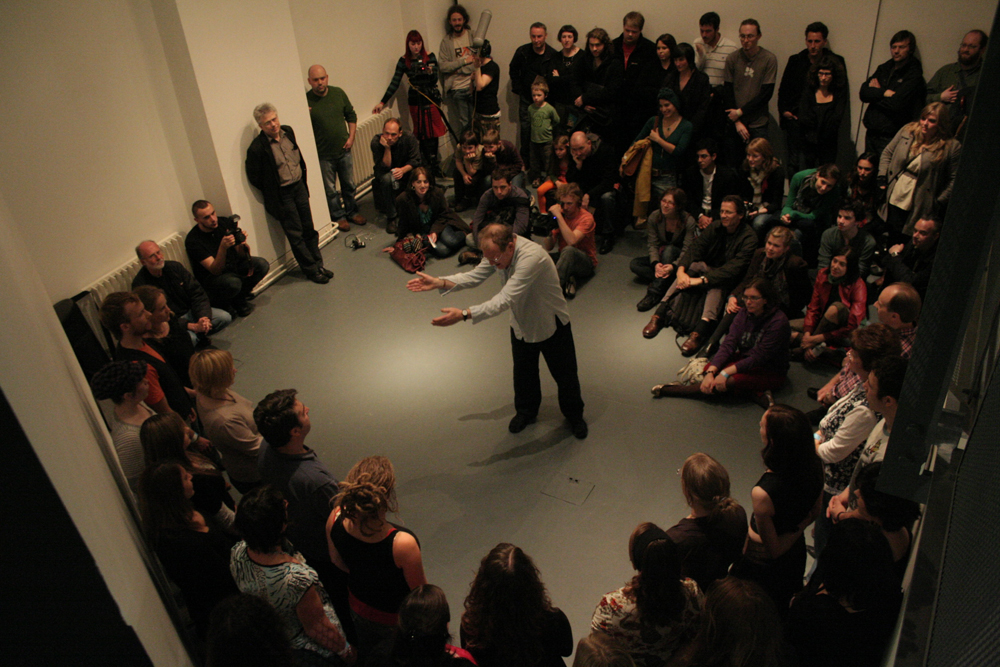
A Feral Choir of people who’ve never improvised with their voices before, conducted by improviser yodeller, composer Phil Minton.

Taku’s actions strip back musical performance to one of its original proposals: what is an action and how does it create a situation for spending time together, for paying attention?
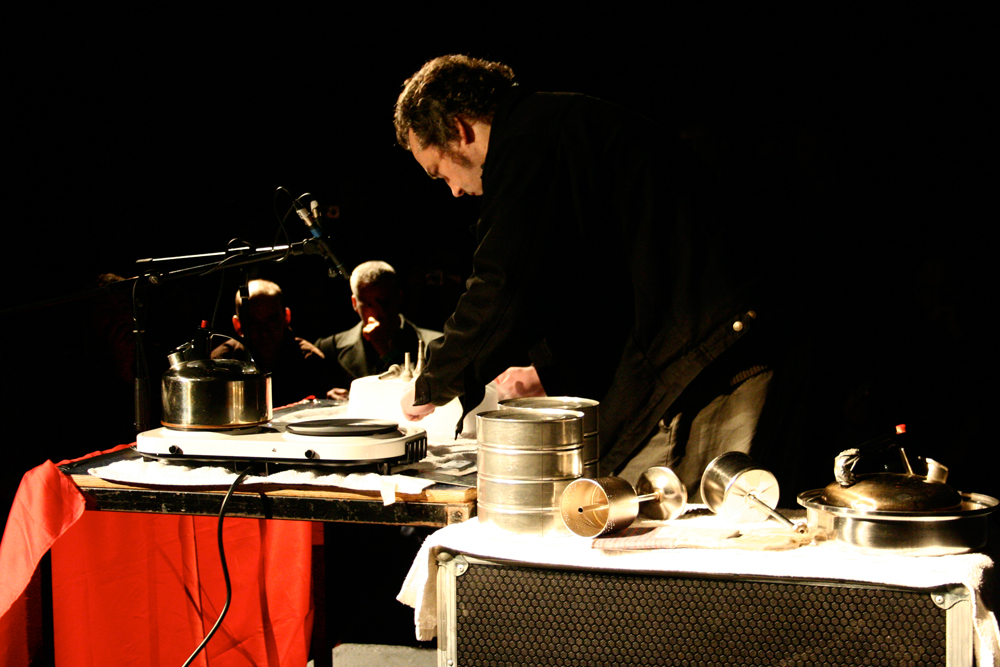
Michael Colligan pressing white hot metal into dry ice, causing the metal to sing and scream.